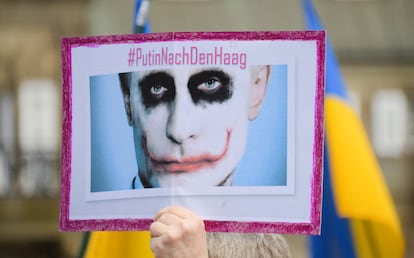How are Putin and Musk alike?
Dictators and billionaires sometimes have the luxury of acting without checks and accountability; that can be their downfall

They can’t be more different. Putin is a genocidal dictator, and Musk is a brilliant inventor.
The Russian leader is responsible for the deaths of tens of thousands of innocent people. Elon Musk is responsible for the world’s best-selling electric cars, for pioneering innovations in battery technology and for technological advances such as Paypal that allow for digital payments. He’s also behind SpaceX, which builds rockets that can be launched into space, recovered and quickly reused. Then there is the hyperloop – a pneumatic mass transit system that will be able to carry people and goods very fast over long distances. And don’t forget Neuralink, a company whose mission is to develop technologies that will allow the brain to communicate wirelessly with a computer.
Both Putin and Musk want to change the world: Putin by destroying and Musk by creating. They both have the power and the money to finance their ambitions. According to Fortune magazine, Musk is the richest person in the world. According to the estimates of several intelligence services, Vladimir Putin is secretly the richest. In addition to his personal fortune (estimated at perhaps $200 billion), Putin is also free to use Russian state funds to finance his ventures.
In this, the dictator and the entrepreneur show some parallels. Putin wanted Ukraine and Musk wanted Twitter. The first illegally invaded the neighboring country and the second legally bought a company for $44 billion.
Both decisions were made by a single person. The protocols and processes that normally influence the making of such important decisions were irrelevant. Naturally, the invasion of Ukraine and its aftermath of death and destruction is infinitely more serious than the purchase of a very expensive company whose operation has enormous political and social implications. But both the invasion and the acquisition happened because these two men wanted it. Period.
Putin justifies the invasion with arguments from the past, while Musk explains his interests in terms of the future and the challenges facing our civilization. The Russian dictator maintains that Ukraine was always part of Russia and should become so once again, and that his military incursion is simply seeking to correct a geopolitical blunder made after the collapse of the Soviet Union. For him, the Kremlin should have never allowed its Russian-speaking satellites to become independent countries.
Musk instead thinks that a revamped Twitter may be the best instrument for protecting freedom of speech throughout the world: “My strong intuitive sense is that having a public platform that is maximally trusted and broadly inclusive is extremely important to the future of civilization.” he said.
The billionaire innovator has been worrying about the world’s future for years. In one of his talks, he made this bold prediction: “The future of humanity is going to bifurcate in two directions: Either it is going to become multiplanetary, or it’s going to remain confined to one planet and eventually there is going to be an extinction event.”
The contrasts between the brilliant visionary out to transform our civilization into a multiplanetary one and the bloodthirsty dictator trying to return the world to the 19th century could not be more sobering. But the invasion of Ukraine and the takeover of Twitter illustrate how weak accountability is in authoritarian regimes and among the ultra-rich tech titans. In both cases, the boss makes the decision without showing much concern for the opinions of those who disagree with them, or for the fact that they might not know what they don’t know: one of the most common reasons why dictators fall and companies fail.
Let’s hope that, at least in this regard, Musk and Putin are different.
Tu suscripción se está usando en otro dispositivo
¿Quieres añadir otro usuario a tu suscripción?
Si continúas leyendo en este dispositivo, no se podrá leer en el otro.
FlechaTu suscripción se está usando en otro dispositivo y solo puedes acceder a EL PAÍS desde un dispositivo a la vez.
Si quieres compartir tu cuenta, cambia tu suscripción a la modalidad Premium, así podrás añadir otro usuario. Cada uno accederá con su propia cuenta de email, lo que os permitirá personalizar vuestra experiencia en EL PAÍS.
¿Tienes una suscripción de empresa? Accede aquí para contratar más cuentas.
En el caso de no saber quién está usando tu cuenta, te recomendamos cambiar tu contraseña aquí.
Si decides continuar compartiendo tu cuenta, este mensaje se mostrará en tu dispositivo y en el de la otra persona que está usando tu cuenta de forma indefinida, afectando a tu experiencia de lectura. Puedes consultar aquí los términos y condiciones de la suscripción digital.









































